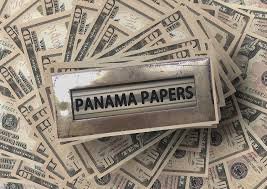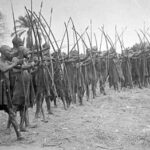By: Investigative Features Desk
Published: August 2025.
Introduction: A Global Leak, African Echoes
In April 2016, the world was rocked by the largest data leak in history—the Panama Papers. Over 11.5 million confidential documents from Panamanian law firm Mossack Fonseca were handed to the German newspaper Süddeutsche Zeitung, which partnered with the International Consortium of Investigative Journalists (ICIJ).
While much of the spotlight initially fell on global powerhouses—like Iceland’s Prime Minister—the papers also cast a penetrating light on the African continent. Hidden within the leak were names of political elites, presidential relatives, and business magnates from Africa, all connected to secret offshore accounts, tax shelters, and shell companies that moved millions—sometimes billions—outside of the continent’s borders.
This documentary article investigates Africa’s shadowy presence in the Panama Papers, identifying key figures and the implications for governance, transparency, and justice.
The Offshore Web
The Panama Papers exposed how a global elite, including Africa’s powerful families and political allies, utilized complex financial structures to:
Hide wealth
Evade taxes
Shield assets from scrutiny
While owning offshore companies is not necessarily illegal, secrecy becomes a tool for corruption when public figures use it to obscure ownership of vast wealth and avoid accountability. In Africa—where public services struggle and inequality deepens—these revelations sparked anger and renewed calls for transparency.
Also Read: Türkiye-Tanzania Steel Trade Mission Scheduled September
The Presidents and Their Proxies
Ahmed al-Mirghani – Sudan’s Silent Millions
Among the few African heads of state named directly was Ahmed al-Mirghani, former president of Sudan (1986–1989). Al-Mirghani, who passed away in 2008, owned an offshore company called Orange Star Corporation in the British Virgin Islands. The company controlled a London property valued at over $2.7 million.
The revelation raised questions about how leaders in fragile economies accumulated such assets abroad while public services remained underfunded at home.
Jaynet Kabila – The First Sister of DRC
Jaynet Désirée Kabila Kyungu, twin sister of then-President Joseph Kabila of the Democratic Republic of Congo, was listed as a director of Keratsu Holding Limited, a company incorporated in the South Pacific island of Niue.
The firm reportedly held a stake in Vodacom Congo, one of the country’s largest telecom operators. The fact that a member of the ruling family had a private stake in a critical national utility raised eyebrows over conflict of interest and governance standards.
Clive Khulubuse Zuma – The Nephew in Oil
In South Africa, President Jacob Zuma’s flamboyant nephew, Clive Khulubuse Zuma, was linked to a controversial oil deal in the Democratic Republic of Congo through Caprikat Limited, an offshore company registered in the British Virgin Islands.
Caprikat was awarded oil blocks worth $10 billion, despite Clive Zuma having no apparent experience in the oil industry. The deal was later scrutinized by watchdog groups for signs of nepotism and backroom diplomacy.
Family Ties and Fortune Flows
Ghana – From the Presidency to Panama
John Addo Kufuor, son of former Ghanaian President John Agyekum Kufuor, was linked to Excel 2000 Trust, established in 2001 in Panama. Documents indicated the trust held bank accounts and property in London. His mother, Theresa Kufuor, was also linked to the trust.
Another Ghanaian name, Kojo Annan, son of former UN Secretary-General Kofi Annan, was found to be connected to multiple shell companies. One of them, Sutton Energy Ltd., was used to buy luxury property in London, reportedly worth £500,000.
Kenya – The Judge and the Family Trusts
In Kenya, former Deputy Chief Justice Kalpana Rawal and her husband were listed as directors of several offshore companies registered in the British Virgin Islands. These companies were linked to prime real estate in London, purchased through complex offshore arrangements.
The judicial office she held raised serious concerns about conflicts of interest and the independence of the judiciary in the face of financial secrecy.
The Pandora Continuation
The revelations did not stop with Panama Papers. In 2021, a new leak—the Pandora Papers—provided even more explosive insights. This time, sitting African presidents and ministers were directly implicated.
Uhuru Kenyatta (Kenya): His family reportedly controlled assets worth over $30 million through offshore trusts in Panama and the British Virgin Islands.
Ali Bongo Ondimba (Gabon): Linked to multiple offshore firms, including Gazeebo Investments Ltd.
Denis Sassou Nguesso (Republic of Congo): His family used shell companies to control diamond mining interests.
Jim Muhwezi (Uganda): Current Security Minister, linked to two offshore firms used to purchase real estate abroad.
These revelations reinforced a disturbing pattern—wealthy African elites often use the very financial secrecy systems they condemn publicly.
The Fallout and the Silence
While the Panama Papers caused resignations in Iceland and legal action across Europe, Africa’s political class remained largely untouched.
No sitting president faced prosecution.
Few parliamentary inquiries were opened.
Public outrage faded with time.
Some argued that institutions lacked the independence to investigate the powerful. Others suggested a culture of impunity had taken root.
A Call for Accountability
The Panama Papers, followed by the Pandora Papers, offered a rare x-ray into how wealth is extracted and hidden by the very people tasked with leading Africa’s development.
The documents challenged citizens to demand financial transparency, political accountability, and stronger institutions. But change has been slow.
As long as offshore secrecy remains legal and unregulated, and as long as leaders can hide wealth in distant havens without consequence, the promise of development will remain an illusion for many on the continent.
“The Panama Papers did not just reveal corruption. They revealed the architecture that makes corruption possible.” John-Allan Namu, Investigative Journalist (Kenya)
Sources:
ICIJ Panama Papers Database
Süddeutsche Zeitung
The Guardian
African Arguments
DW News
Pandora Papers (ICIJ, 2021)
Disclaimer
This publication has been compiled from the Panama Papers and Pandora Papers. Mwe has no links or associations with any of the individuals or entities mentioned herein. The information presented is for informational purposes only and does not imply any endorsement or affiliation.



